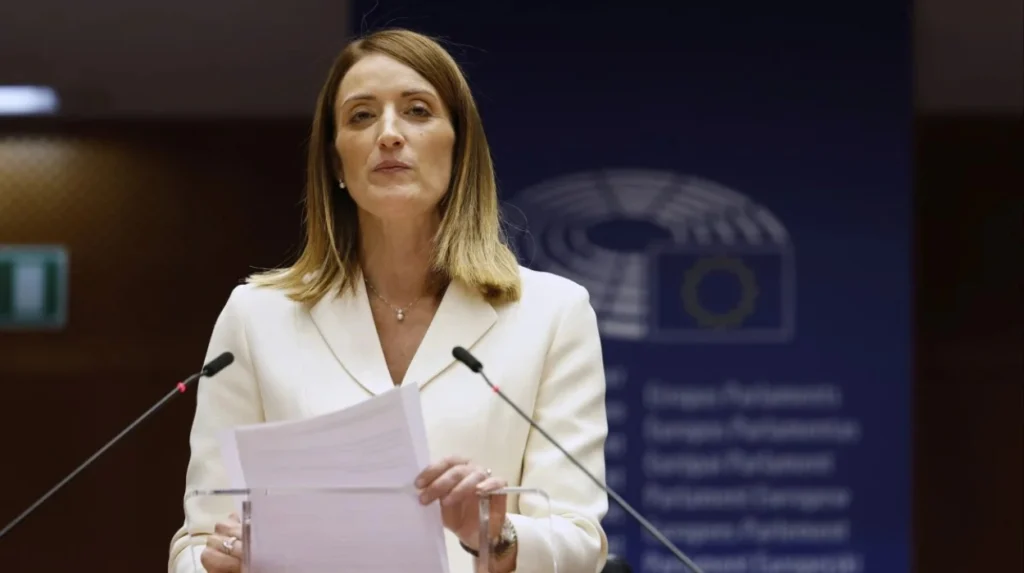The European Parliament has publicly identified five of its lawmakers implicated in an ongoing bribery scandal investigation linked to the Chinese technology conglomerate Huawei Technologies. This revelation marks a significant development in a probe spearheaded by Belgian federal prosecutors, who allege that Huawei engaged in illicit lobbying practices involving bribery and undue influence within EU institutions.
Background of the Scandal
Belgian federal prosecutors launched an investigation into Huawei’s lobbying activities aimed at swaying legislation and policy-making processes in the European Parliament. The case, which has unfolded over the past two months, centers on accusations that Huawei offered gifts, cash, lavish trips, and other incentives to Members of the European Parliament (MEPs) and their aides in exchange for political support aligned with Huawei’s business interests.
The probe emerged amid heightened scrutiny over China’s potential influence on critical 5G infrastructure development in Europe. Huawei, a leading global player in telecom equipment, has faced repeated allegations globally regarding security risks and opaque lobbying practices. This scandal adds to a growing list of corruption-related cases affecting EU institutions, echoing earlier episodes such as the 2022 “Qatargate” affair.
Named Lawmakers and the Allegations
On Wednesday, European Parliament President Roberta Metsola publicly named the five lawmakers targeted by Belgian prosecutors. They are:
- Daniel Attard, Maltese Socialist MEP
- Nikola Minchev, Bulgarian centrist MEP from Renew Europe
- Salvatore De Meo, Italian member of the centre-right European People’s Party (EPP)
- Fulvio Martusciello, Italian EPP member
- Giusi Princi, Italian EPP member
All five are accused of accepting gifts or illicit payments from Huawei in return for lobbying efforts benefiting the Chinese tech giant’s interests within the Parliament.
These accusations include details of undisclosed financial incentives, extravagant hospitality such as football match tickets, and all-expenses-paid trips to China. Belgian authorities suspect the gifts were systematically used to influence the lawmakers’ positions on technology and digital infrastructure policies, notably concerning 5G rollout debates in the EU.
President Metsola stated,
“The Parliament has received a request for cooperation from the Belgian authorities to assist the investigation, which the Parliament has honoured.”
She emphasized the institution’s stance against corruption, underscoring a “zero tolerance policy towards corruption and fraud.”
Legal and Institutional Proceedings
Following the naming of the five MEPs, the parliament’s Committee on Legal Affairs has been tasked with reviewing the Belgian federal prosecutor’s formal request to waive the lawmakers’ parliamentary immunity. Such a waiver is essential for prosecutors to conduct formal investigations and pursue potential prosecutions.
The Committee is preparing a draft report which will then be voted on internally. A final decision regarding the lifting of immunity will involve a vote of the entire European Parliament comprising 720 members.
This procedural step underlines the balance between protecting parliamentary independence and ensuring accountability in cases of suspected criminal conduct.
Wider Investigation and Arrests
The investigation has led to multiple raids across various EU countries, primarily Belgium, Italy, Portugal, and France. Authorities have targeted the offices of parliamentary assistants and Huawei’s Brussels headquarters, signaling the probe’s extensive reach.
As of the latest update, eight individuals have been charged with active corruption, money laundering, and participating in a criminal organization. Those charged include current and former Huawei employees, lobbyists, and parliamentary aides. While no MEPs have been arrested to date, suspicions remain strong due to the arrest of several assistants, including an assistant to Italian MEP Fulvio Martusciello.
The Belgian prosecution characterized the corrupt activities as ongoing and carefully concealed under the guise of legitimate commercial lobbying. The alleged bribery was said to be a recurring and covert practice geared towards influencing EU digital policy decisively in Huawei’s favor.
Huawei’s Response
Huawei has issued a statement rejecting any wrongdoing. The company affirmed,
“We have a zero-tolerance policy towards corruption or other wrongdoing, and we are committed to complying with all applicable laws and regulations at all times.”
Huawei confirmed its willingness to cooperate fully with the investigations.
However, the scandal has already had repercussions on Huawei’s ability to conduct normal lobbying activities. As a precautionary measure, the European Parliament suspended all Huawei lobbyist access to its premises in Brussels, Strasbourg, and Luxembourg. Similarly, the European Commission has ceased all meetings with Huawei-related lobby groups and trade associations representing or advocating for the company.
Impact on EU Politics and Telecom Policy
This scandal revives concerns over the integrity of EU political processes and the vulnerabilities of its institutions to external influence. The timing is critical, given ongoing debates over European digital sovereignty and 5G infrastructure security amid rising geopolitical tensions.
A 2021 letter signed by eight MEPs advocating for the unhindered development of 5G technology in Europe, widely believed to be aligned with Huawei’s interests though not explicitly naming the company, has come under scrutiny. Allegations suggest that co-signatories may have received undisclosed payments disguised as consultancy fees or campaign expenses tied to this letter.
Several MEPs who signed the letter have denied receiving any such payments from Huawei.
Statements from the Parliamentarians
Among the named MEPs, Bulgarian Nikola Minchev commented,
“This is related to the investigation into my former assistant. The Belgian prosecution has not made any specific accusations against me, but wants to check whether anything improper may have taken place.”
Maltese MEP Daniel Attard and Italian representatives Salvatore De Meo, Fulvio Martusciello, and Giusi Princi have acknowledged being contacted by Belgian authorities but have consistently denied any involvement in corrupt practices.
The Huawei bribery scandal presents a challenging episode for the European Parliament, casting a spotlight on the influence of foreign lobbying in EU policymaking and the effectiveness of existing anti-corruption safeguards. The eventual outcomes of the legal proceedings and parliamentary votes on immunity could reshape the Parliament’s approach to transparency and oversight. Meanwhile, Huawei faces significant reputational damage as EU institutions clamp down on its lobbying activities amidst ongoing investigations.







